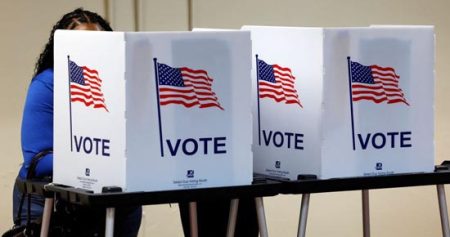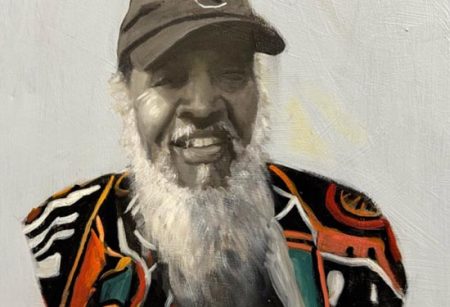Black Conservatism v. Black Progressivism in U.S. History
by Willie Cameron, Jr.
Black Americans, like other ethnic groups, have viewed the country’s politics from different sides of the political divide from 1619 until this present day.
Slavery produced divisions among slaves, which was a very useful tool for the slave owner. Some slaves thought that in order to survive, the best thing to do was to submit to the status quo; others were bent on fighting for their freedom from the beginning.
It seems easy to see which group would have been looked upon more favorably by the majority population and would therefore benefit more in their servitude.
During the Revolutionary War (1775-1783) blacks fought on both sides, for different reasons. The British managed to recruit slaves to their armies with the promise of freedom, while other blacks still felt that loyalty to the colonies would eventually pay off in emancipation and acceptance, and fought on America’s side.
At war’s end, England had managed to free approximately 4,000 black vets by transplanting them to Britain, Nova Scotia, and Jamaica. As for the slaves who fought for the colonies, it was back to business as usual. The Founding Fathers installed the new government and wrote a Constitution that legalized the “Peculiar Institution,” slavery, for the next 80 years.
The Antebellum Period (1789-1859), again saw blacks divided on how to proceed as chattel in the young and growing nation. The conservatives as well as progressives flocked to the Christian church, where over the years their different views on how to conduct themselves were noticeable. Leaders such as Richard Allen and Absalom Jones founded black churches and began to educate and prepare slaves for freedom, while radical preachers like the infamous Nat Turner chose rebellion over passivism.
The word “conservatism” is defined as “a commitment to traditional values and ideas with opposition to change and innovation, and the holding of political views that favor free enterprise, private ownership, and socially conservative ideas.” The War Between the States (1861-1865) was started by the Confederate States of America, a conservative government that adhered to every word of the above definition.
The word “progressivism” is defined as “support for and advocacy for social reform,” which is exactly what the northern states would be fighting their southern brothers and sisters for. The war ended, the North won, and blacks were given their legal freedom but not social equality, and the effects of this conservative notion are still felt in our modern society. The path to social equality would again and again be disputed by African Americans and place them at opposite ends of the political gamut.
In the late 19th century, this political disunity can best be seen in the views of two of American history’s greatest leaders, Booker T. Washington and William E. B. DuBois. These two giants disagreed on strategies for black social and economic progress, how to end class and racial injustice, and what the haves in our community owe to the have-nots.
Booker Taliaferro Washington was an African American educator, author, orator, and advisor to presidents. Between 1890 and 1915, he was the dominant leader in the colored community to whom he preached a philosophy of self-help, racial solidarity, and accommodation. Blacks should accept discrimination for a time and concentrate on self-elevation through hard work and material prosperity. Education should center on crafts, industrial, and farming skills. Blacks should have virtues such as patience, enterprise, and thrift. The majority population loved him.
William Edward Burghardt Dubois was an African American sociologist, historian, civil rights activist, author and, editor. Dubois expressed ideas 180 degrees from Washington’s. He advocated political action and a civil rights agenda; he believed that social change would come about by developing the small group of college-educated blacks he termed “The Talented Tenth.” The majority population hated him.
In hindsight we see that both men were right. It took hard work and thrift for African American parents to send their children to college, and those same kids came back to their communities to lead.
The years following Washington and Dubois have seen many political differences between blacks. Many followed Dr. King while others favored such leaders as Malcom X and H. Rap Brown.
Our modern America sees African Americans holding political offices on the local level, state, and also federal. It has come to pass that the President of the United States is a black man. Approximately 90% of blacks have supported his progressive agenda and are proud of him. The other 10% seem to hate him as much as or more than the staunchest racist. They are stuck in the muck and mire of same-sex marriage, and overlook all other issues. They are the new black conservatives.
Most of these people have benefitted much from progressive or liberal governments. Now they have forgotten those who helped them become the “talented tenth.” They give religion as the reason for their distance from the president, yet that same religion said nothing against the last president who sent young men and women to war under false pretenses. Exodus: Chapter 20, verse 16 says “Thou shalt not bear false witness against thy neighbor,” one of the top ten don’ts of the Bible.
Perhaps the day will come when the slave owner, the field slave and the house slave will see that freedom and equality for ALL is what the Founding Fathers were trying to get to. If so, maybe the race and the nation will be better for it.
Willie Cameron, Jr. lives in Asheville.







